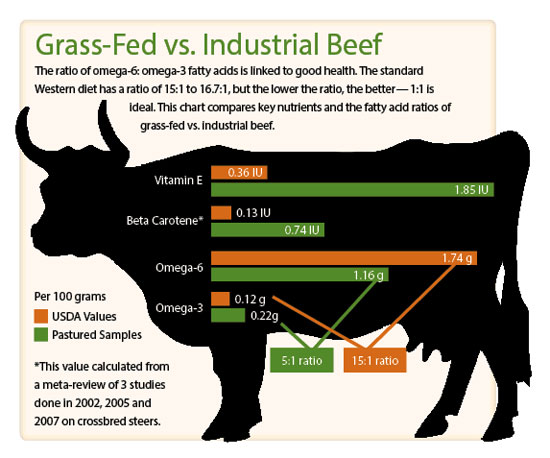Health Benefits of Grass-Fed Beef
The Superior Choice for Health-Conscious Individuals
When it comes to the topic of health benefits, grass-fed beef stands out as a superior choice over conventionally raised beef. In this article, we will delve into the numerous advantages of consuming grass-fed beef and why it should be a staple in your diet.
Rich in Essential Nutrients
Grass-fed beef is packed with essential nutrients that are vital for our overall health and well-being. It is an excellent source of high-quality protein, which is essential for muscle growth, repair, and maintenance. Additionally, grass-fed beef contains a wide range of vitamins and minerals, including vitamin B12, iron, zinc, and selenium.
Lower in Unhealthy Fats
Compared to conventionally raised beef, grass-fed beef is significantly lower in unhealthy fats. This is because grass-fed cattle graze on natural grasses, resulting in meat that has a healthier fat profile. Grass-fed beef contains higher levels of omega-3 fatty acids, which have been linked to a reduced risk of heart disease and inflammation.
Higher in Beneficial Fatty Acids
One of the standout features of grass-fed beef is its higher content of beneficial fatty acids. Grass-fed beef contains a balanced ratio of omega-3 to omega-6 fatty acids, which is optimal for our health. These fatty acids play a crucial role in brain function, reducing inflammation, and supporting heart health.
More Antioxidants and Vitamins
Grass-fed beef is also known to be higher in antioxidants and vitamins compared to conventionally raised beef. The natural diet of grass-fed cattle, consisting of grass and other foraged plants, provides them with a rich source of antioxidants. These antioxidants, such as vitamin E, help protect our cells from damage caused by harmful free radicals.
Lower Risk of Antibiotic Resistance
Another significant advantage of choosing grass-fed beef is the lower risk of antibiotic resistance. Conventionally raised cattle are often given antibiotics to promote growth and prevent diseases that arise from crowded and unsanitary conditions. By opting for grass-fed beef, you reduce your exposure to these antibiotics, contributing to the fight against antibiotic resistance.
Environmentally Friendly Choice
Aside from the health benefits, consuming grass-fed beef is also an environmentally friendly choice. Grass-fed cattle are raised more sustainably, as they graze on pastures rather than being confined to feedlots. This practice helps reduce greenhouse gas emissions and promotes a more balanced ecosystem.

In conclusion, grass-fed beef offers a myriad of health benefits that make it a superior choice over conventionally raised beef. From its rich nutrient profile to its lower unhealthy fat content and higher levels of beneficial fatty acids, grass-fed beef is a nutritious option for health-conscious individuals. By choosing grass-fed beef, you not only prioritize your health but also contribute to a more sustainable and environmentally friendly food system.
Frequently Asked Questions
1. What are the health benefits of grass-fed beef?
Grass-fed beef is rich in omega-3 fatty acids, which can help reduce the risk of heart disease and inflammation.
2. Does grass-fed beef contain less fat compared to grain-fed beef?
Yes, grass-fed beef generally contains less total fat and fewer calories compared to grain-fed beef.
3. Is grass-fed beef a good source of essential nutrients?
Absolutely! Grass-fed beef is a great source of essential nutrients like vitamin B12, iron, zinc, and selenium.
4. Can grass-fed beef help in weight management?
Yes, grass-fed beef can be beneficial for weight management as it is leaner and can help you feel fuller for longer periods.
5. Does grass-fed beef have a higher omega-3 to omega-6 ratio?
Yes, grass-fed beef typically has a higher omega-3 to omega-6 fatty acid ratio compared to grain-fed beef.
6. Are there any potential environmental benefits of consuming grass-fed beef?
Grass-fed beef production systems often have a lower environmental impact, including reduced greenhouse gas emissions and soil conservation.
7. Can grass-fed beef be part of a heart-healthy diet?
Yes, grass-fed beef can be included in a heart-healthy diet due to its lower levels of saturated fat and higher omega-3 content.
8. Is grass-fed beef free from antibiotics and hormones?
Grass-fed beef is typically produced without the use of antibiotics and hormones, making it a more natural and sustainable choice.
9. Are there any differences in taste between grass-fed and grain-fed beef?
Many people find that grass-fed beef has a richer and more distinct flavor compared to grain-fed beef.
10. Can grass-fed beef contribute to a sustainable food system?
Yes, supporting grass-fed beef production can contribute to a more sustainable food system by promoting rotational grazing and supporting local farmers.




